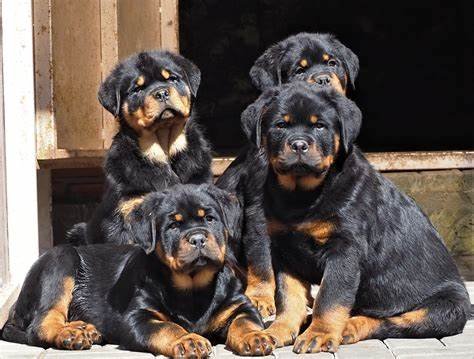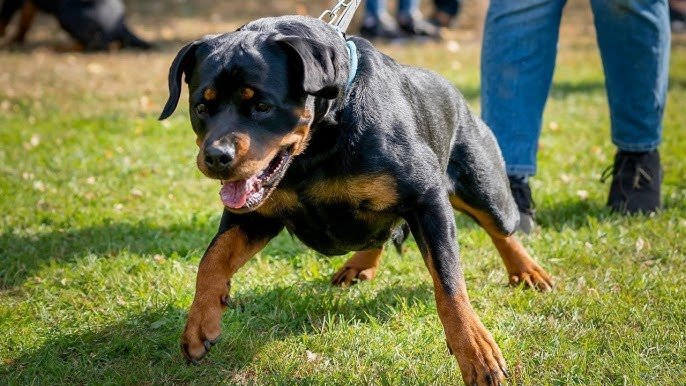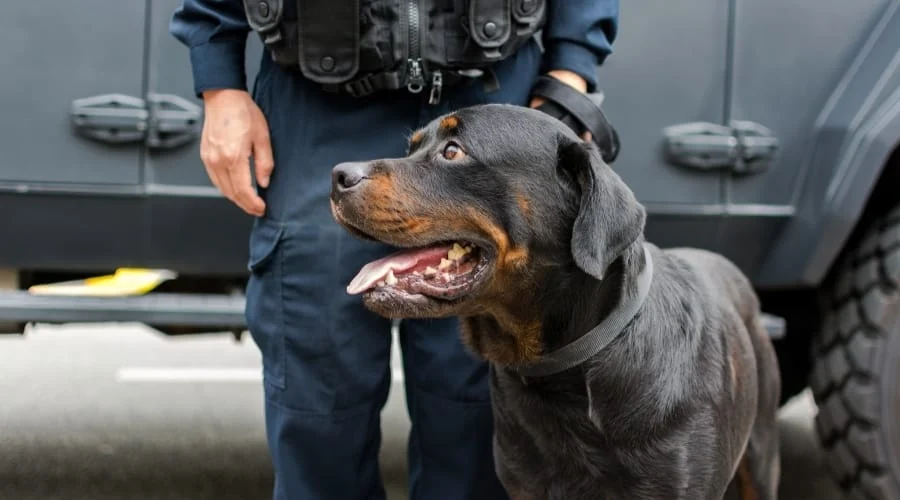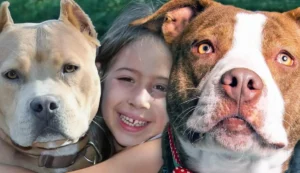Rottweiler Puppies: How to Choose and Care for Them
Rottweilers are an intelligent, loyal, and protective breed that makes an excellent companion for responsible owners. Choosing the right Rottweiler puppy and providing the best care from an early age is crucial to raising a well-adjusted and well-behaved dog. This guide will help you understand what to look for when selecting a Rottweiler puppy and how to properly care for them as they grow.
1. Selecting the Right Rottweiler Puppy
When choosing a Rottweiler puppy, it’s important to focus on health, temperament, and the reputation of the breeder. Start by finding a reputable breeder who prioritizes the health and well-being of their puppies. Look for breeders who test for common genetic conditions, such as hip dysplasia or heart issues, which can be prevalent in Rottweilers. A responsible breeder will also provide the puppy’s health history and be transparent about the puppy’s parentage.
Examine the puppy’s temperament. Look for one that is confident but not overly aggressive or shy. A well-socialized Rottweiler puppy should be curious, playful, and responsive to human interaction. It’s important to meet the puppy’s parents if possible, as their behavior can often influence the puppy’s temperament as they grow. Additionally, make sure the puppy has been properly vaccinated and dewormed before bringing them home.
2. Preparing Your Home for a Rottweiler Puppy
Before bringing a Rottweiler puppy home, make sure your living space is puppy-proofed. Rottweilers are active, curious, and sometimes mischievous, so removing any hazards such as electrical cords, sharp objects, and choking hazards is essential. Setting up a designated sleeping area, such as a crate or a comfortable dog bed, will give your puppy a secure space to rest and relax.
Invest in the necessary supplies, including food and water bowls, toys, grooming tools, and a leash and collar. A crate is an excellent tool for house training and providing your Rottweiler with a safe space. Additionally, consider creating a designated potty area in your yard for easier housebreaking. Having everything ready before the puppy arrives will make the transition smoother for both you and your new companion.
3. House Training and Early Socialization
House training is one of the first tasks you’ll need to tackle with your Rottweiler puppy. Be patient, consistent, and positive when teaching your puppy where to go potty. Take your puppy outside frequently, especially after meals, naps, and playtime. Reward them with praise or treats when they do their business in the right place, and avoid punishment if accidents occur indoors. With patience and consistency, your Rottweiler puppy will quickly learn the routine.
Socialization is equally important. Introduce your Rottweiler puppy to various people, environments, and animals to ensure they grow into a confident and well-rounded adult dog. Early socialization will help your puppy develop proper behavior and reduce the likelihood of fear or aggression toward strangers or other dogs. Puppy classes or playgroups are excellent ways to promote positive social interactions.
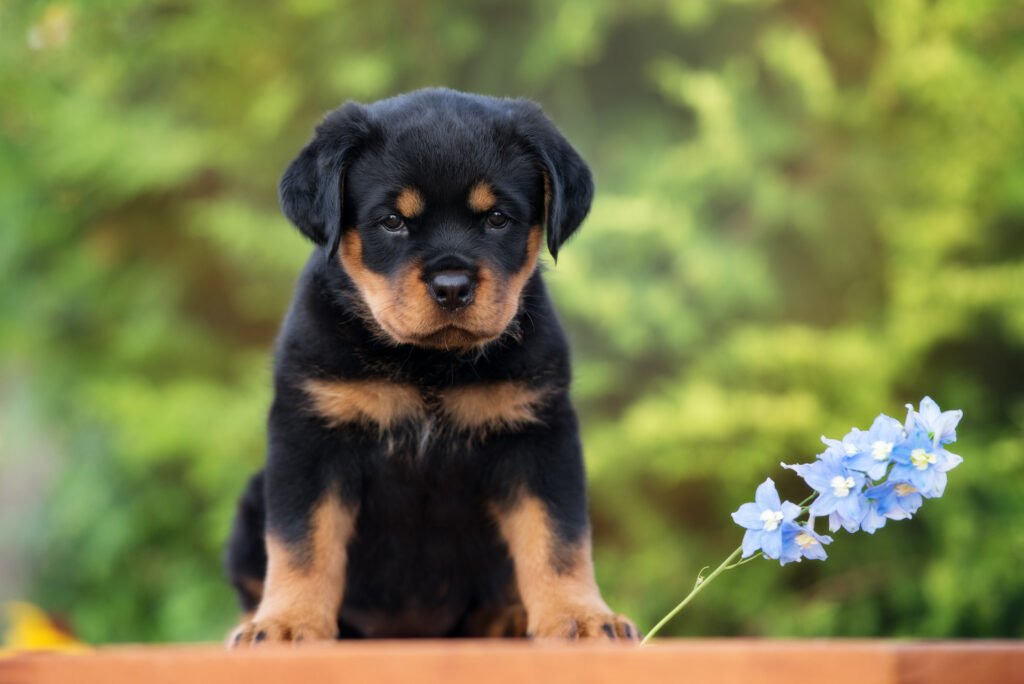
4. Diet and Nutrition for Rottweiler Puppies
Providing the right diet is crucial for your Rottweiler puppy’s growth and development. Puppies need a nutrient-dense, high-quality diet to support their energy levels and muscle development. Look for puppy food that lists animal protein (like chicken or beef) as the first ingredient and is formulated for large breed puppies. Rottweilers, being a large breed, require specific food to support their joints and bones, so make sure the food contains appropriate levels of calcium and phosphorus to promote healthy bone growth.
Feed your puppy the recommended amount based on their age, weight, and activity level, and divide their daily intake into several smaller meals. As they grow, their nutritional needs will change, so consult your vet for feeding guidelines. Avoid overfeeding, as Rottweilers are prone to obesity, which can lead to joint issues and other health problems later in life.
5. Exercise and Mental Stimulation
Rottweiler puppies have plenty of energy and need both physical and mental stimulation to grow into well-adjusted adults. Regular playtime, walks, and interactive activities are essential to help them burn off excess energy and stay healthy. Rottweilers enjoy activities like fetch, tug-of-war, and running, which help strengthen their muscles and keep them engaged.
Mental stimulation is equally important. Provide puzzle toys, obedience training, and interactive games that challenge your puppy’s mind. These activities not only keep them entertained but also prevent boredom and destructive behavior. As your puppy grows, gradually increase the intensity and duration of their exercise to match their developing strength and stamina.
6. Grooming and Health Care
Rottweilers are relatively low-maintenance when it comes to grooming. Their short coat only requires brushing once a week to remove loose hair and prevent matting. However, Rottweilers shed year-round, so regular brushing will help reduce shedding around the home. Regular baths are not necessary unless your puppy gets particularly dirty or has a skin issue. Be sure to trim their nails regularly and check their ears for signs of infection, as Rottweilers are prone to ear problems.
In terms of healthcare, make sure your Rottweiler puppy receives all their vaccinations and preventive treatments as recommended by your vet. Regular vet visits are essential to monitor your puppy’s growth and catch any potential health issues early. Rottweilers are prone to certain health conditions, including hip dysplasia and heart issues, so routine check-ups are important to ensure your puppy is developing properly.
7. Training and Socializing Your Rottweiler Puppy
Training your Rottweiler puppy is crucial to ensure they grow up to be well-behaved and obedient. Start basic obedience training early, including commands such as “sit,” “stay,” “come,” and “leave it.” Positive reinforcement techniques, such as treats, praise, and toys, work best with Rottweilers. Be consistent with your commands and practice regularly to help your puppy learn and retain important behaviors.
Socialization should continue throughout your Rottweiler’s early life. Expose them to various environments, people, and other dogs to prevent fear and aggression. Puppy classes or scheduled playdates with other dogs can help build their confidence and improve their behavior. A well-socialized Rottweiler is more likely to grow into a calm, confident adult.
Conclusion
Choosing and caring for a Rottweiler puppy requires dedication, patience, and proper planning. From selecting a reputable breeder and preparing your home to providing the right nutrition, exercise, and training, every step is essential in raising a healthy, happy, and well-behaved Rottweiler. With the right care and attention, your Rottweiler puppy will grow into a loyal, protective, and loving companion for years to come.
